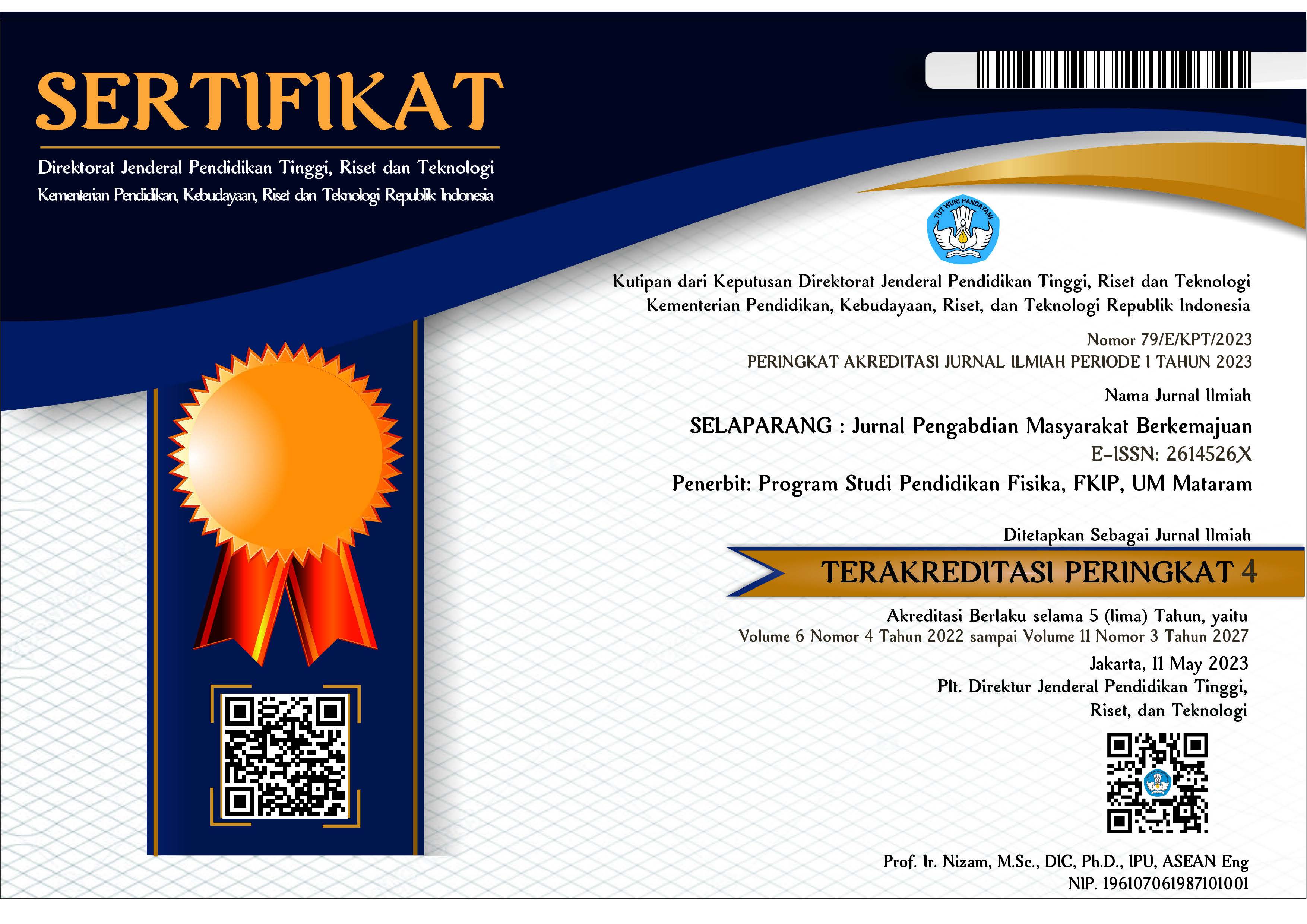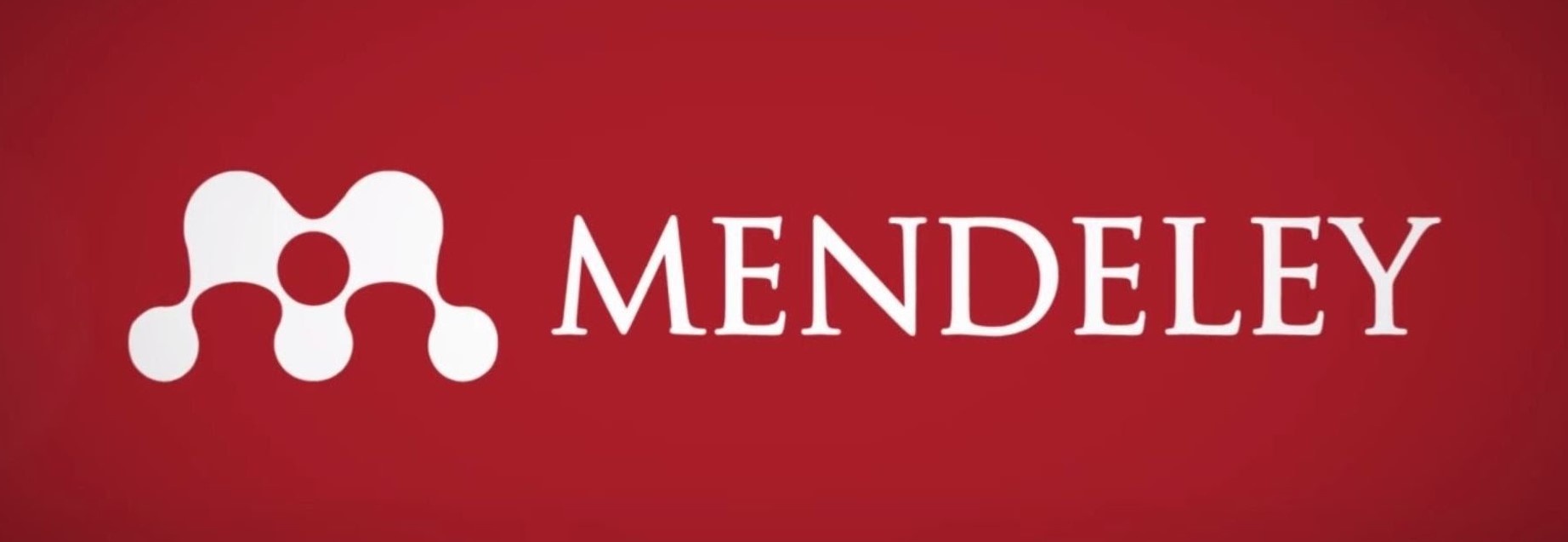Pendampingan penyusunan instrumen asesmen diagnostik matematika untuk mendesain pembelajaran beriferensiasi di Sekolah Dasar
Abstract
Abstrak
Salah satu kesulitan yang dialami guru di sekolah mitra dalam implementasi kurikulum merdeka yaitu mendesain pembelajaran berdiferensiasi pada mata pelajaran matematika. Hal penting yang harus dilakukan guru dalam merancang pembelajaran berdiferensiasi adalah melakukan asesmen diagnostic yang dapat membantu guru dalam mengidentifikasi kebutuhan dan memetakan kemampuan siswa. Tujuan kegiatan ini adalah melakukan pendampingan penyusunan instrument asesmen diagnostic matematika untuk mendesain pembelajaran berdiferensiasi di sekolah dasar. Metode yang digunakan untuk mengatasi permasalahan mitra yaitu melalui kegiatan: 1) workshop penyusunan instrumen asesmen diagnostik; 2) pendampingan penyusunan instrumen asesmen diagnostik; 3) implementasi asesmen diagnostik; 4) monitoring dan evaluasi; serta 5) pelaporan. Keberhasi;an program pengabdian kepada masyarakat ini ditunjukkan adanya peningkatan hasil pre-test dan post-test pengetahuan guru tentang konsep dan penyusunan instrument asesmen diagnostic. Instrument assessment diagnostic yang telah disusun berdasarkan hasil pendampingan, digunakan guru sebagai acuan dalam mendesain pembelajaran berdiferensiasi. Kelas yang bediferensiasi dapat menyajikan jalan yang berbeda dalam rangka memperoleh pengetahuan, memahami ide-ide dan mengembangkan produk sehinga pembelajaran terlaksana secara efektif.
Kata kunci: asesmen diagnostic; instrumen asesmen; kurikulum Merdeka; pembelajaran berdiferensiasi
Abstract
One of the difficulties experienced by teachers at partner schools in implementing the merdeka curriculum is designing differentiated learning in mathematics subjects. The important thing that teachers must do in designing differentiated learning is to carry out diagnostic assessments that can help teachers identify needs and map student abilities. This activity aims to assist in preparing mathematics diagnostic assessment instruments to design differentiated learning in elementary schools. The method used to overcome partner problems is through activities: 1) workshops on preparing diagnostic assessment instruments; 2) assistance in preparing diagnostic assessment instruments; 3) implementation of diagnostic assessments; 4) monitoring and evaluation; and 5) reporting. The success of this community service program is demonstrated by an increase in pre-test and post-test results in teacher knowledge regarding the concept and preparation of diagnostic assessment instruments. Teachers use the diagnostic assessment instrument prepared based on the mentoring results as a reference in designing differentiated learning. Differentiated classes can present different paths to gaining knowledge, understanding ideas, and developing products so that learning can occur effectively.
Keywords: diagnostic assessment; assessment instruments; independent curriculum; differentiated learning
Keywords
Full Text:
PDFReferences
Aisyah, A., Sukmawati, & Ria, R. (2023). Analysis of Diagnostic Assessment on Fulfillment of Competency Standards in the Implementation of the 2013 Curriculum Emergency Covid 19 at Public Elementary School 3 Abepura, Jayapura City, Papua. Journal of Educational Analytics, 2(2), 157–166. https://doi.org/10.55927/jeda.v2i2.4063
Deunk, M. I., Smale-Jacobse, A. E., de Boer, H., Doolaard, S., & Bosker, R. J. (2018). Effective differentiation Practices: A systematic review and meta analysis of studies on the cognitive effects of differentiation practices in primary education. Educational Research Review, 24, 31–54. https://doi.org/10.1016/j.edurev.2018.02.002
Elitasari, H. T., Rakhmawati, Y., Safitri, I. Y. B., & Asip, M. (2023). Alteration: 2013 Curriculum Becomes Merdeka Curriculum in Elementary Schools. Progress Pendidikan, 4(2), 122–130. https://doi.org/10.29303/prospek.v4i2.350
Fan, T., Song, J., & Guan, Z. (2021). Integrating diagnostic assessment into curriculum: a theoretical framework and teaching practices. Language Testing in Asia, 11(1). https://doi.org/10.1186/s40468-020-00117-y
Iraqi, H. S., Lena, M. S., Sulastri, J., & Reviana, F. R. (2023). Pembelajaran Seni Rupa dalam Penerapan Kurikulum Merdeka di Sekolah Dasar. YASIN: Jurnal Pendidikan Dam Sosial Budaya, 3(4), 640–649. https://doi.org/10.58578/yasin.v3i4.1283
Kanwal, S., & Farooq, M. S. (2021). Development of Diagnostic Assessment Test for Misconceptions (ATM) in Mathematics at Elementary School Level. Global Educational Studies Review, VI(I), 94–102. https://doi.org/10.31703/gesr.2021(vi-i).10
Magableh, I. S. I., & Abdullah, A. (2020). The effectiveness of differentiated instruction by streaming: A preliminary study of current practices in the UAE. International Journal of Learning, Teaching and Educational Research, 19(6), 95–110. https://doi.org/10.26803/ijlter.19.6.6
Natasari, K. N., Thamrin, A. G., & Cahyono, B. T. (2023). Implementation of diagnostic assessment as one of the steps to improve learning in the implementation of the independent curriculum. Journal of Indonesian Student Assessment and Evaluation, 9(1), 15–25. https://doi.org/10.21009/JISAE
Pham, H. L. (2012). Differentiated Instruction and The Need to Integrate Teaching and Practice. Journal of College Teaching & Learning-First Quarter, 9(1).
Prabaningrum, W. F., & Sayekti, I. C. (2023). Implementası Kurıkulum Merdeka di Sekolah Dasar Tahun Ajaran 2022/2023. Jurnal Elementaria Edukasia, 6(2), 374–383. https://doi.org/10.31949/jee.v6i2.5326
Sulistyani, N., & Deviana, T. (2019). Analisis Bahan Ajar Matematika Kelas V Sd Di Kota Malang. Jurnal Pemikiran Dan Pengembangan Sekolah Dasar (JP2SD), 7(2).
Syah, H. F., Wardani, S., & Suminar, T. (2023). Analysis of the Implementation of the Independent Curriculum in the Bina Insani Integrated Islamic Elementary School in Semarang City. Innovative Journal of Curriculum and Educational Technology, 12(1), 27–36. https://journal.unnes.ac.id/sju/index.php/ujet/article/view/
Tulbure, C. (2013). The Effects of Differentiated Approach in Higher Education: An Experimental Investigation. Procedia - Social and Behavioral Sciences, 76, 832–836. https://doi.org/10.1016/j.sbspro.2013.04.215
Warsihna, J., Ramdani, Z., Amri, A., Kembara, M. D., Steviano, I., Anas, Z., & Anggraena, Y. (2023). Tantangan dan Strategi implementasi Kurikulum Merdeka pada Jenjang SD: Sebuah Temuan Multi-Perspektif. Kwangsan: Jurnal Teknologi Pendidikan, 11(1), 296. https://doi.org/10.31800/jtp.kw.v11n1.p296--311
Yarullin, I. F., Yangirova, V. M., & Ignatovich, V. G. (2016). Preparing elementary school teachers to conduct diagnostic testing of the elementary school children development. International Journal of Environmental and Science Education, 11(3), 317–326. https://doi.org/10.12973/ijese.2016.317a
Zerai, D., Eskelä-Haapanen, S., Posti-Ahokas, H., & Vehkakoski, T. (2023). The meanings of differentiated instruction in the narratives of Eritrean teachers. Pedagogy, Culture and Society, 31(3), 419–437. https://doi.org/10.1080/14681366.2021.1914712
DOI: https://doi.org/10.31764/jpmb.v8i1.22258
Refbacks
- There are currently no refbacks.

This work is licensed under a Creative Commons Attribution-ShareAlike 4.0 International License.
______________________________________________________
Jurnal Selaparang
p-ISSN 2614-5251 || e-ISSN 2614-526X
EDITORIAL OFFICE:



















